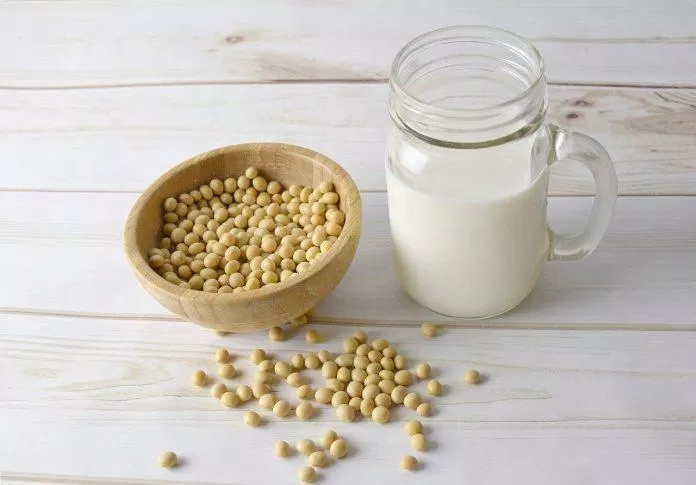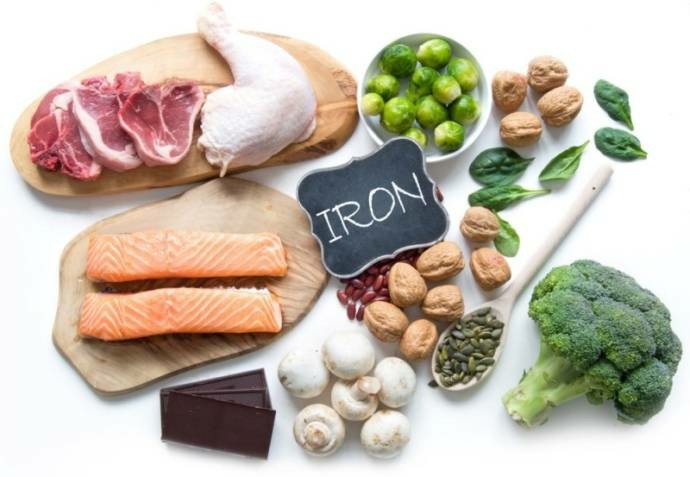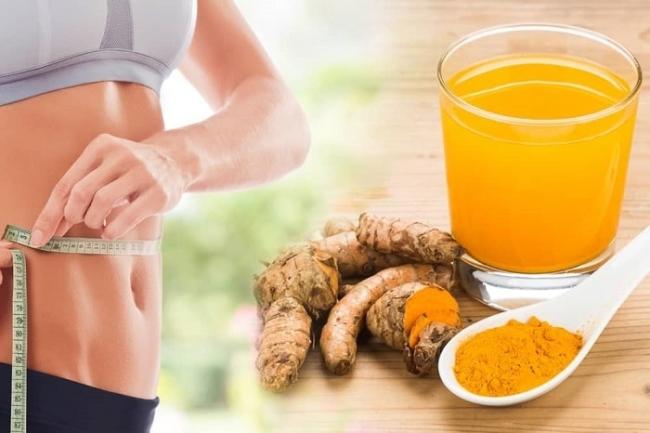Soybeans are a wonderful food, but there is a lot of controversy surrounding the effects of soy.
Soybean is a popular food with high nutritional value, very good for health. But there are also some misconceptions that make many people afraid such as soy causing infertility for men or soy not being good for children. So are these true or not? Let's discover the truth together!
Soybeans have many health benefits
Soybeans and products made from them, like tofu, tempeh, and soy milk, are extremely popular dishes everywhere but also cause a lot of debate about their effects on health.

One of the reasons why experts can't draw conclusions about the benefits and harms of soy is because nutrients such as phytoestrogens, isoflavones, and soy protein can affect people differently, depending on the condition, hormone behavior of the body as well as specific foods. There are also many studies done on animals that are not fully applicable to humans.
Despite this, there is some credible evidence that soy foods are not potentially harmful but good for our health. The American Cancer Society says soy foods are safe and healthy, while the American Heart Association recommends them because they can reduce the risk of heart disease.
Research has shown that soy is associated with lower blood cholesterol and normal blood pressure control. Even a regular soy diet can help maintain a healthy weight. Plus, soy foods are often high in protein, calcium, magnesium, and other important nutrients.
However, besides such great effects, there are also many misconceptions that soy is not good for the body, especially affecting hormones and reproductive functions. So let's discover the truth about these things.
Top 7 common misconceptions about soy
Does soy cause breast cancer?
This is one of the most common misconceptions: too much soy can increase the risk of breast cancer. The reason given is that soy may contain compounds with properties similar to the hormone estrogen, which can stimulate the growth of cells that have estrogen receptors and thereby increase the risk of breast cancer.
But in fact, studies have tracked women's soy intake over time and found no increased breast cancer risk. Some studies even show that people who consume more soy have a lower risk of this disease.
Example: A follow-up study of more than 300,000 women published in the European Journal of Epidemiology in June 2020 found that an additional 10 g of soy per day can reduce the risk by 3%. have breast cancer.
Soy causes dementia and memory loss.
Dementia is a complex group of conditions that scientists still don't fully understand, so there hasn't been much research on the effects of soy in this regard, and the results have been mixed.
For example, a study published in Medical Hypotheses in 2014 suggested that soy (especially the industrially produced variety) may increase the risk of cognitive decline, while an article in the journal Translational Research & Clinical Interventions in October 2020 reported that eating more soy could prevent dementia.
However, one thing is for sure: there is no evidence that soy foods are associated with an increased risk of dementia.
The fact that soy has been shown to have high antioxidant properties has led many experts to suggest that it can help with brain and intellectual function. But based on current studies, it is still impossible to draw definite conclusions on this issue.
Soy makes men weak and “feminized”?
You have probably heard this quite commonly because soy contains plant estrogens; many people think eating tofu or drinking too much soy milk can disrupt male hormones and cause symptoms. “feminization” symptoms such as large breasts, muscle weakness, and even erectile dysfunction.
But in fact, this notion is completely incorrect. Human studies have shown that soy consumption does not affect men's testosterone hormone levels and semen production function.
A review published in the March 2021 issue of the Journal of Reproductive Toxicology compiled 38 studies on soy and male hormones. It concluded that: even when soy was consumed in larger amounts than in In a normal Japanese diet, soy and its isoflavones also do not affect the levels of male hormones, including testosterone, estradiol, and estrone.
Thus it can be concluded: there is no convincing evidence that soy alters the male appearance and physiological function.
Does soy cause infertility?
Soy affects human reproductive function because of its high concentration of phytoestrogens or phytoestrogens.
One study found that consuming soy in large amounts in the diet can cause ovarian dysfunction in women. Specifically, a lot is defined as more than 100 mg of soy isoflavones per day, while an 85 g serving of tofu contains only about 20 mg of isoflavones.
Such findings have apprehension for couples who want to have children. But just one study alone is not enough to draw firm conclusions.
Other studies have shed light on the link between soy and reproductive function in recent years. A review published in the Journal of Nutritional Science in March 2022 found that soy can help with pregnancy when consumed in doses of about 6 to 40 grams daily.
Dr. Aaron Styer, medical director at CCRM Fertility in Boston, said: “There is no evidence that regular soy in the diet (vegetarian or non-vegetarian) disrupts fertility balance female reproductive hormones or increases the risk of infertility. It is safe to include soy in the diet and does not pose any health risks of concern.”
Is soy not a source of high-quality protein?
With a long-standing habit of eating meat, Westerners often do not believe in plant-based proteins; for example, that soy protein does not provide enough essential amino acids for the body.
These amino acids are important for making proteins, repairing tissues and cells, and absorbing and transporting nutrients in the body.
Of course, a piece of tofu doesn't have the same nutritional profile as a steak, but soybeans are a good source of protein. Nutritionists say soy is considered a high-quality protein, even one of the few plant proteins that contain all 9 essential amino acids.
Is soy dangerous for young children?
Soy formulas have been warned because of concerns that their isoflavones could affect a baby's development.
For example, a 2019 study in the journal Human Reproduction found that isoflavones can cause health problems as children get older, like dysmenorrhea. Another study in the Journal of Clinical Endocrinology and Metabolism in May 2018 reported that these substances could cause changes in cells in the reproductive organs.
However, the truth is that young children can still eat soy without fear of danger. Studies are inconclusive on the long-term effects of soy formula on babies. A review published in the November 2018 issue of Frontiers in Nutrition found that soy formula was not associated with adverse effects often about child development.
Furthermore, in 2009 a panel of experts from the US National Toxicology Program concluded that the adverse effects of soy formula on infant development were negligible.
The American Academy of Pediatrics recommends soy formula if a baby has a genetic disorder such as galactosemia (a condition of the metabolism of the sugar galactose) or an inherited lactase deficiency (inability to digest cow's milk) or if the parent wants to give it to their child infants using non-animal formula milk.
Experts concluded that parents could safely and nutritionally feed their babies soy formula, and even fortified procedures can be comparable to cow's milk.
Does soy inhibit the absorption of other nutrients?
If you are interested in nutrition and diet, you may have heard of “antinutrients”.
These are substances found in foods (including soybeans) that are thought to inhibit the absorption of certain vitamins and minerals in the digestive tract. Soybeans contain phytates, oxalates, and lectins, which can reduce the absorption of iron, calcium, and zinc.
However, the antinutrients in soy are not too serious of a problem. A study published in the October 2020 issue of the journal Nutrition says that it's still unclear to what extent soy affects the absorption of other nutrients. Soy does not significantly reduce the body's nutrients unless you eat it continuously in large amounts.
Most people only eat soy in small amounts, so there is almost no risk of nutrient deficiencies due to malabsorption. Research also shows that high heat reduces the number of oxalates and lectins in foods, so you can cook soybeans to reduce these antinutrients.
In summary, the risk of nutritional deficiencies due to soy is negligible compared to the nutritional value it provides.
Above are the facts about the nutritional value of soybeans – a very healthy food and not as toxic as a misconception. Do you take soy regularly? Leave a comment below in the comments section!
Follow Bellyfatzone to update much useful information!






